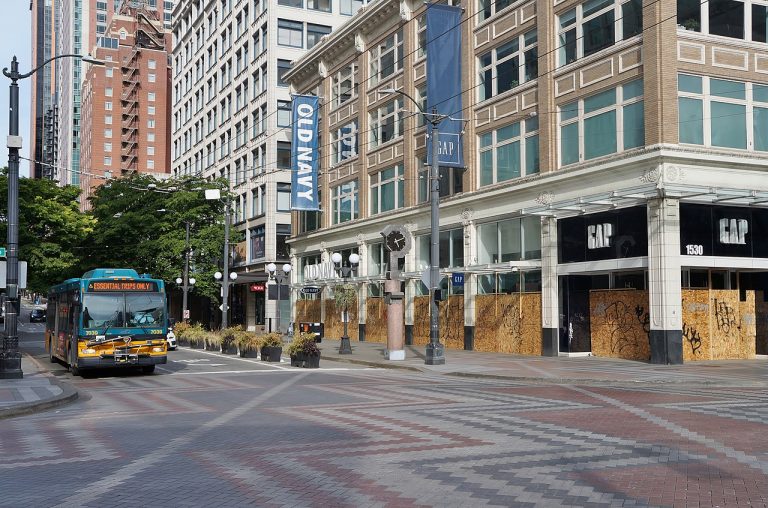Published on May 25, 2023

Tony Wang’s truck Yumbit is located on the corner of 6th Avenue and Lenora Street, the shiny heart of what some here playfully call “Amazonia”, after Amazon, the largest employer in the downtown area. And the extra customers that he and similar outlets are scrambling to serve are some of the 55,000 employees Amazon ordered to return to the office to work at least three days a week starting in May.
The pandemic posed many challenges for businesses downtown. Without the thousands of office workers pouring into high rises each weekday, once busy streets in the city’s downtown became empty. Stores had few customers; millions of dollars in potential sales taxes were lost. The buzz and bustle associated with a large group of commuters disappeared.
There are also demands that the development Harrell envisions benefits everyone. Here, as in many American cities, Black-owned businesses suffered the most during the pandemic, the result, according to experts, of historical structures that has made it more difficult to access credit and capital, among other challenges.
Some local businesses in recent years made a point to advertise themselves as “Black-owned” in an attempt to encourage loyalty or earn new customers. A study by the University of Washington found any boost was short lived. “In the long run, especially the last months of 2020, the Black-owned businesses declined faster than those restaurants that didn’t reveal their ownership,” said Bo Zhao, associate professor of geography, who carried out the study using data gathered by companies such as Yelp.
Continue reading at The Guardian.
Originally written by Andrew Buncombe for The Guardian.